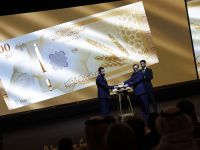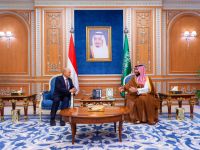The Mahakam River Delta in East Kalimantan has been a major oil-producing area for Total Indonesia since the mid 1970s.
Though the offshore part is well covered with 3D data, the land and transition-zone area lacked modern seismic.
A recent 3D survey yielded inadequate results, obliging Total to be very rigorous in selecting the right contractor for a new program.
CGG, with over 30 years’ Indonesian experience and the leading contractor in transition and shallow water environments around the world, was the preferred candidate for overcoming the exceptional and complex challenges present in this high-risk location.
Exceptional operating challenges:
In June 1998 Total Indonesia awarded CGG’s Indonesian subsidiary PT Alico the contract to record land and OBC 3D data over two blocks totaling approximately 500 square kilometers.
From the start of permitting and survey operations in August 1998 until recording was completed in July 1999, the field crew had to resolve many issues on a daily basis.
A safe and unobtrusive approach:
First, it was imperative to run a safe and environmentally unobtrusive operation.
The first part of the survey in the Kerbau area covered the Handil gas production facility, crossing Total’s gas and oil pipes, well heads, flares and high-voltage power lines.
Close cooperation with Total’s production management and dedicated safety awareness on the part of all field personnel allowed this area to be recorded without any accidents or disruption to gas production.
CGG’s Geoland survey planning software enabled the crew to respect minimum distance criteria from obstacles, while keeping coverage restrictions to a minimum.
The Mahakam Delta buzzes with all sorts of human activities such as fish farming and sea fishing.
The crew had to deal with many fish traps on the edge of the transition zone and OBC area, wooden structures which constitute dangerous obstacles for cable and airgun boats.
In a climate of growing social unrest in Indonesia, CGG and Total’s permitting and public relations officers had their work cut out to enable the work to proceed smoothly.
Uncompromising acquisition technology:
The second major challenge was technical: as the seismic signal response in this area is known to be poor, the latest available acquisition technology admitting no compromise was called for.
This meant using CGG Sercel SU6-B submersible station units and BU6 dual-sensor telemetric OBC cables to deliver full quality data to the Sercel SN 388 recording system in all field conditions.
Optimum energy input was achieved by drilling dynamite charges in up to 6m water depth using special CGG equipment, and a powerful shallow-draft airgun boat in deeper water.
Shallow water acquisition:
With as many as 1,500 people employed at any one time on the field crew in environments ranging from nippa-nippa jungle to fish farms, from six-knot currents in the river channels to 50 meters water depth in the open ocean, the men of CGG crew 231 69 14 proved that high-quality data, timely acquisition, high safety standards and good flexibility and responsiveness to client requirements can all be achieved.
A satisfied client :
Lotfi Ben Brahim, Chief Geophysicist of Total Indonesia, offered the following comment on CGG’s performance on this survey: "Despite a known poor seismic response in these environments, the data currently being interpreted show encouraging features".
"Overall, this operation was conducted professionally and can be considered as successful. It has shown that acquisition in these difficult environments is technically and environmentally feasible".
We also received a testimonial from Total Indonesia congratulating the crew on its excellent HSE performance in such a difficult field environment.
C.G.G.NOTE:Regular readers will be aware that this is the latest in a series of CGG World reports of successful seismic operations in challenging transition zone and shallow marine zones.
In the Asia-Pacific region we have recently completed several very tough jobs to the satisfaction of Arco in Java and Irian Jaya, of Unocal in Kalimantan, of British Gas in Irian Jaya, and of ONGC in India.
Right now we have two transition zone crews operating in this region, for Shell in Bangladesh and for Cairn on the east coast of India.
It is fair to say that this wealth of experience has earned CGG its reputation as the contractor of first choice by energy companies exploring for oil and gas in such high-risk frontier areas.
Source:WWW.CGG .COM
By Erwan Postic







